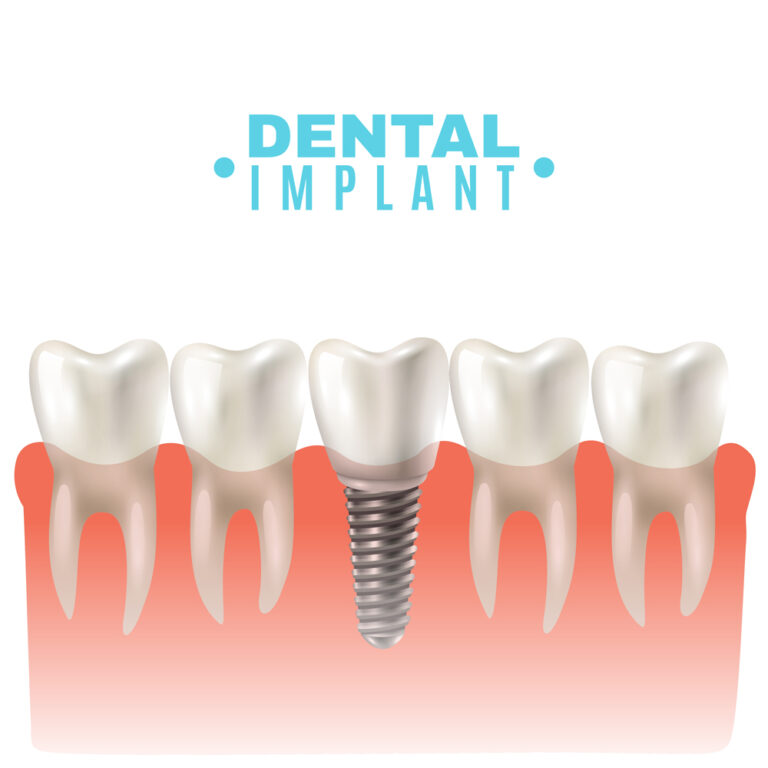Understanding Periodontal Disease: Causes, Symptoms and Advanced Treatment Options
Healthy gums are the foundation of a vibrant, beautiful smile. But what if your gums are under attack? One of the most common oral health issues that people face is periodontal (gum) disease – an inflammatory condition affecting the tissues surrounding the teeth. Left unchecked, it can lead to various complications such as tooth loss and has also been linked to systemic diseases like heart disease and diabetes. Herein lies the importance of early detection, preventive measures, and effective treatment options.
Dr. Cochran, a specialist in periodontics and implantology, is committed to helping patients better understand periodontal disease, its symptoms, causes, and various ways to avoid or manage the condition. With specific expertise in advanced treatments for gum disease, Dr. Cochran has helped countless patients restore oral health and smile confidence.
In this comprehensive guide, we’ll break down all you need to know about periodontal disease. Key areas to be covered include:
- Understanding Periodontal Disease: An overview of what periodontal disease is and the causes behind it.
- Recognizing the Symptoms: A detailed look into the myriad signs of gum disease that can help in early detection.
- The Consequences of Untreated Gum Disease: Discuss the negative impacts on both oral and overall health if periodontal disease is left unchecked.
- Advanced Treatment Options: A review of the state-of-art treatment procedures available for effectively combating periodontal disease.
- Preventive Measures: Practical tips to follow for preventing or managing gum diseases.
The objective is to equip readers with valuable insights and preventive measures, helping them make well-informed decisions about their oral health. Periodontal disease is a battle that can be won with the right understanding and action. Join us as we uncover everything you need to know about this widespread dental problem, providing a roadmap to healthier gums and a brighter smile.
Understanding Periodontal Disease: Causes, Symptoms and Advanced Treatment Options
What is Periodontal Disease, and What Causes It?
Periodontal disease, commonly referred to as gum disease, is an inflammatory condition that affects the supporting tissues surrounding the teeth, which includes the gum, periodontal ligament, and the alveolar bone. It starts as gingivitis, the mildest form of gum disease, characterized by redness, swelling, and bleeding gums. If left untreated, gingivitis can progress into periodontitis, a more severe condition that can lead to tooth loss.
The primary cause of periodontal disease is the buildup of bacteria-laden plaque on the surface of the teeth. Over time, this chronic bacterial infection leads to the breakdown of gum tissue and bone. Other factors contributing to the development of gum disease include poor oral hygiene, genetics, smoking, hormonal fluctuations, certain medications, and underlying health conditions such as diabetes.
Recognizing the Symptoms of Gum Disease
Early detection of periodontal disease is crucial to prevent it from progressing and causing irreversible damage. Common symptoms to look out for include:
- Red, swollen, or tender gums
- Gums that bleed during brushing or flossing
- Receding gum line
- Persistent bad breath or bad taste in the mouth
- Formation of deep pockets between teeth and gums
- Loose or shifting teeth
- Change in bite or fit of dentures
If you are experiencing any of these symptoms, it’s essential to consult a periodontist like Dr. Cochran, who can provide a comprehensive evaluation and recommend appropriate treatment options.
The Consequences of Untreated Gum Disease
Delaying treatment for periodontal disease can lead to various consequences, impacting not just oral health but also overall well-being. Complications arising from untreated gum disease include:
- Tooth Loss: A result of progressive destruction of the gums, ligament, and bone that keeps teeth anchored in place.
- Abscess Formation: A bacterial infection in the pockets surrounding the teeth leading to pain, swelling, and possible spread of infection.
- Systemic Health Effects: Research has indicated a connection between periodontal disease and systemic conditions such as heart disease, diabetes, stroke, and respiratory infections.
Timely intervention can significantly reduce the risk of these complications, making it crucial to seek professional help at the earliest signs of gum disease.
Advanced Treatment Options for Periodontal Disease
Treatment for periodontal disease varies depending on the severity and the individual needs of the patient. Some of the state-of-the-art procedures available for effectively combating periodontal disease include:
- Scaling and Root Planing: A non-surgical deep cleaning process involving the removal of plaque and tartar from tooth surfaces and smoothing of the tooth roots, helping the gums reattach and preventing further plaque buildup.
- Periodontal Laser Therapy: A minimally invasive approach that utilizes laser technology to treat infected gum tissue, reduce inflammation and kill harmful bacteria.
- Osseous Surgery: A surgical procedure that addresses deep gum pockets, damaged bone, and stubborn plaque buildup, promoting the regeneration of healthy bone and gum tissue.
- Guided Tissue Regeneration (GTR): A surgical technique that uses barrier membranes to stimulate the body’s natural ability to regenerate bone and periodontal ligament destroyed by gum disease.
- Bone Grafting: A procedure that involves the placement of graft material, often from the patient’s own body, to stimulate the growth of new bone in areas affected by gum disease.
Preventive Measures for Gum Health
Adopting a proactive approach to oral hygiene can help prevent periodontal disease or manage it in its early stages. Essential preventive measures include:
- Regular Brushing and Flossing: Brush at least twice a day using fluoride toothpaste and floss daily to remove plaque and food particles between teeth.
- Professional Cleanings: Schedule routine dental appointments for check-ups and professional cleanings to ensure optimal oral health.
- Balanced Diet: Maintain a diet rich in vitamins and minerals, limit sugary and acidic foods, and stay hydrated for a healthier mouth.
- Avoid Tobacco: Smoking increases the risk of periodontal disease, and quitting can significantly improve gum health.
- Monitor Your Oral Health: Regularly inspect your mouth for signs of gum disease and seek dental care promptly if you notice any changes or symptoms.
Conclusion
Understanding the causes, symptoms, prevention, and treatment options for periodontal disease is fundamental for maintaining optimal oral health and well-being. Detection and intervention in the early stages of gum disease can significantly impact the success of the treatment. With the expertise of a skilled Colorado periodontist like Dr. Cochran and a commitment to maintaining a healthy lifestyle and oral hygiene routine, you can combat periodontal disease and enjoy a healthier, more radiant smile.

 header-logo
header-logo





